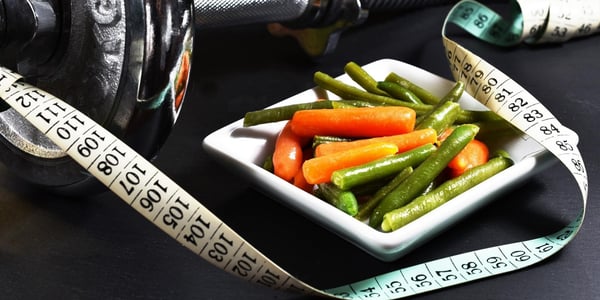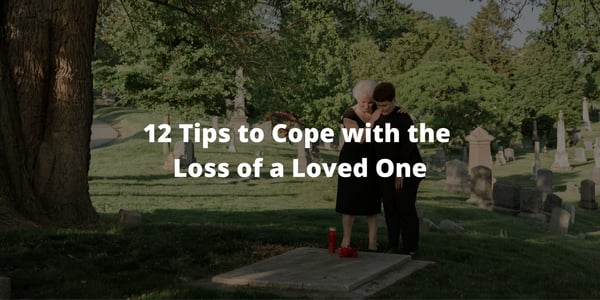Losing weight is a big task in itself, but for many, it can be even more challenging to keep the...
7 Ways to Combat Unintentional Weight Loss
Unintentional weight loss is a concerning issue that can affect individuals of all ages and backgrounds. It can be caused by a variety of factors, including underlying medical conditions, medications, changes in appetite, or simply not consuming enough calories to maintain a healthy weight. While unintentional weight loss may seem like a desirable outcome for those looking to shed some pounds, it can have severe health consequences, particularly among vulnerable populations, such as the elderly or those with chronic illnesses.
Unintentional weight loss can lead to a range of adverse effects, such as decreased muscle mass, weakened immune systems, and increased risk of falls, among other issues. Furthermore, it can cause mental health challenges, such as depression, anxiety, and social isolation.
Given the significant impact of unintentional weight loss, it is crucial to take proactive measures to prevent it. By making appropriate dietary and lifestyle modifications, one can help prevent unintentional weight loss and promote a healthy lifestyle.
In this article, we will delve into effective strategies to combat unintentional weight loss. By following these recommendations, you can maintain a healthy weight, improve physical and mental health, and enhance overall quality of life.
Determine the Root Cause of Your Weight Loss
To effectively curb unintentional weight loss, you must first determine the root cause of the problem. Here are some common reasons:
-
Social Isolation
Unexplained loss of weight among seniors can be a result of social isolation. Often, feeling lonely can provoke a loss of appetite or suppress the willingness to prepare meals. It can also evoke depression leading to weight loss.
-
Mental Illness
Mental illness and associated symptoms like depression are among the major causes of weight loss. Seniors suffering from mental illnesses such as anxiety and bipolar disorder are more likely to experience unplanned weight loss.
-
Medications
Certain medications can cause weight loss as a side effect. Further, taking multiple medications simultaneously can suppress your appetite by interfering with your sense of smell and taste.
-
Lack of Mobility
As one ages, it's common to experience worsening mobility. As a result, basic daily activities such as cooking, shopping for groceries, or even getting dressed and using the bathroom can become difficult. And because of this, preparing a healthy meal becomes challenging with time, prompting weight loss.
Addressing Unintentional Weight Loss
Consider the following solutions to address unintentional weight loss:
-
Talk to Your Doctor
The best means to curb unintentional weight loss is by consulting your doctor. Your doctor will provide an accurate evaluation and diagnosis of the cause of the weight loss. Whether it's a social or health factor, you'll be able to determine the cause by sharing your experiences with a medical professional. Your doctor can also help recommend a solution to the problem. From food options and supplements to appetite stimulants, among other solutions, your doctor will provide you with the best recommendation.
-
Use Supplements
There are times when malnutrition is the root cause of unintentional weight loss among the elderly. Since consuming some of these essential nutrients through a diet can be challenging, supplements come in handy. Supplements ensure enough supply of nutrients in precise amounts. However, as mentioned, before taking any food supplements, consult your doctor first. With their help, you'll discover the right types of supplements to rely on in fighting malnutrition.
-
Exercise
 Physical activities boost the rate of metabolism and consequently improve your appetite. Therefore, consider light workouts that your body can manage safely to stimulate your appetite. Moderate exercise several times a week is enough to boost the rate of metabolism in older adults.
Physical activities boost the rate of metabolism and consequently improve your appetite. Therefore, consider light workouts that your body can manage safely to stimulate your appetite. Moderate exercise several times a week is enough to boost the rate of metabolism in older adults.Some basic exercises include walking around the neighborhood or the park at least once a day. Take part in aerobic exercise classes or try a few stretches. In addition to working up an appetite, exercise boosts immunity, prevents muscle loss, and strengthens bones.
-
Monitor Medications
Medications play an important role in ensuring you live a quality and healthy life. However, some medications cause adverse side effects. One common side effect is a loss of appetite.
With the loss of appetite and inability to consume enough food, weight loss is likely. That said, your medication could be affecting your appetite if it's causing dry mouth, nausea, or swallowing difficulties. Therefore, you need to consult your doctor for alternative medications that won't affect your appetite.
-
Bring Snacks
 While building enough of an appetite to consume a sizeable meal can be difficult, carrying snacks can be handy. This will help you to consume enough calories and maintain a stable weight. And by choosing nutritious snacks with minerals, vitamins, and proteins, you can fight unintentional weight loss.
While building enough of an appetite to consume a sizeable meal can be difficult, carrying snacks can be handy. This will help you to consume enough calories and maintain a stable weight. And by choosing nutritious snacks with minerals, vitamins, and proteins, you can fight unintentional weight loss. -
Eat Your Favorite Foods
Eating a balanced meal is crucial, especially for older adults. However, focusing on unappetizing meals may lead to low consumption that eventually causes weight loss. Therefore, it's important to focus on both a balanced diet as well as eating your favorite foods. With your favorite food, you'll have the motivation to eat enough and curb hunger.
-
Consider Your Surroundings
Where you eat your meal determines your level of appetite. For instance, you may find it hard to dine in a dirty, cluttered, dark, and distracting environment. However, relaxing in a clean, well-organized, and pleasant environment creates an atmosphere that's easy to dine in. With that said, a pleasing surrounding plays an important role when it comes to anyone's desire to eat.
There are times when a poor sense of taste, medications, chewing inability, and slow digestion make eating undesirable. But thanks to the above tips, you can stabilize your weight and prevent unintentional loss.







